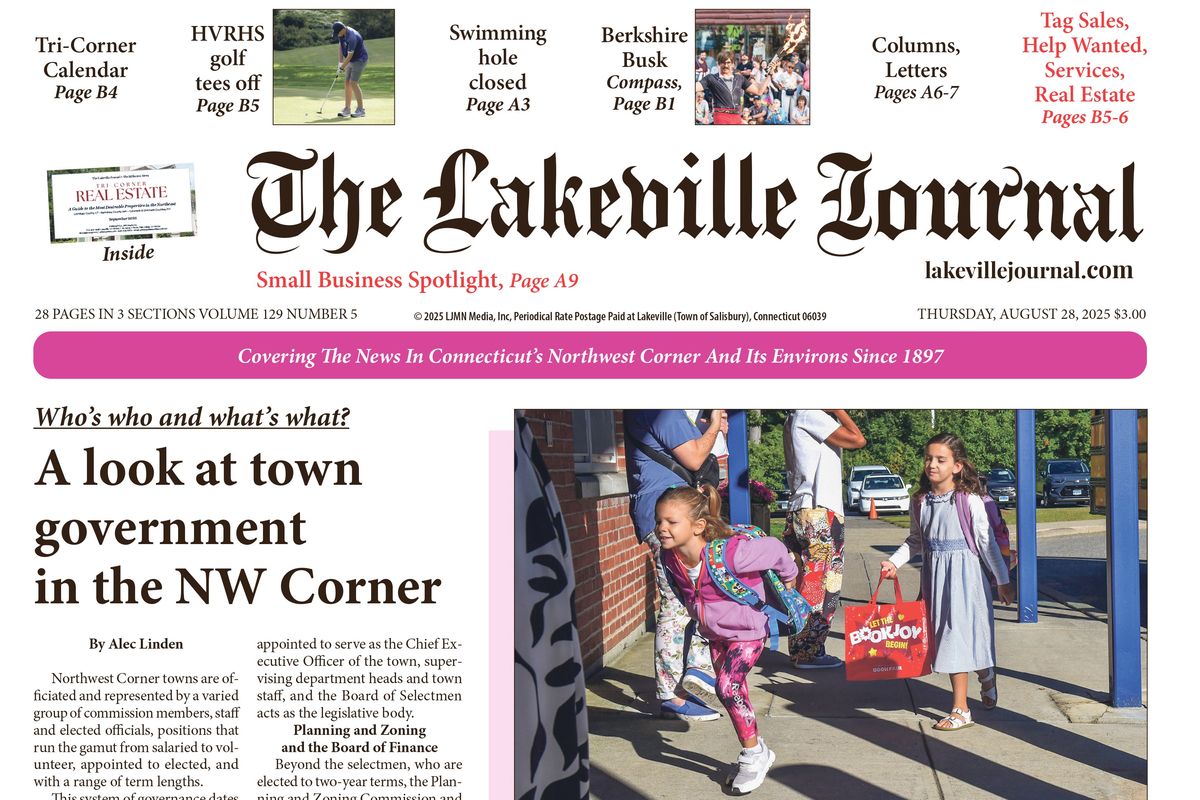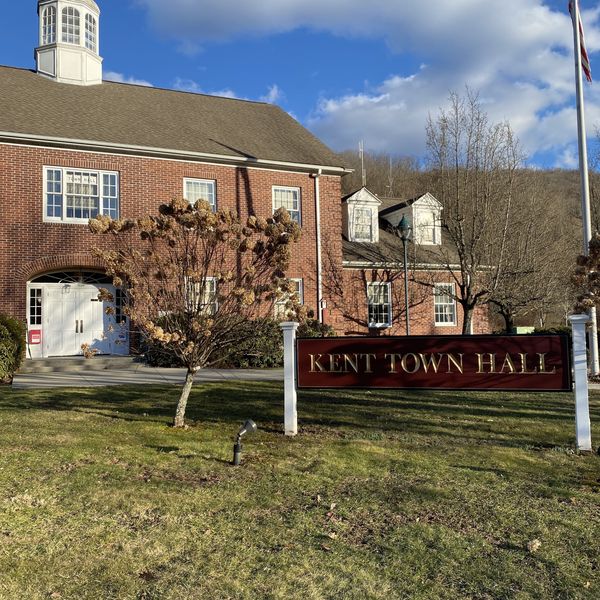Latest News
Busking in the Berkshires
Aug 27, 2025
Brent McCoy of Secret Circus Show at Berkshire Busk!
Roman Iwasiwka
While playing outside in the early post-pandemic days, Berkshire Busk! founder Eugene Carr had an epiphany: why not expand the idea of performing on the street (aka busking)into a full-fledged festival in Great Barrington?
As an entrepreneur and cellist, Carr envisioned a well-organized jamboree featuring regional talent, including musicians, acrobats, storytellers, fire-eaters, and more. He formed a team, connected with local businesses and the town of Great Barrington, and launched Berkshire Busk! in 2021. Since then, Berkshire Busk! has grown into a summer staple for Great Barrington.
In the summer of 2024, over 25,000 people experienced Berkshire Busk!. The festival is free to the public, provides a big boost to local businesses, and spectators can tip performers.
Busking takes place all over the world, either organized by individual performers or via busking festivals. Artists like The Roots, Tracy Chapman, Phoebe Bridgers, and Old Crow Medicine Show have all cut their teeth performing on the street.
General Manager Carli Scolforo is a Berkshire native with a love of music and writing. She can often be seen roaming the streets of Great Barrington, making sure everything’s in order, and serves as the festival’s face on social media.
“This year is the fifth anniversary of Berkshire Busk!, and it’s been an amazing summer,” said Scolforo. “We were able to welcome back a lot of our favorite performers, and bring in some new experiences as well. After getting rained out last year, we were able to host our first outdoor movie night in partnership with The Triplex Cinema and the Boondocks Film Society.”
Scolforo added, “This summer, we also introduced our first Open Mic Night, hosted by local recording artist and music producer Jackson Whalan. We were really pleased with the turnout of talent. The sheer amount of talent that’s hidden within an hour or so drive of Great Barrington always astounds us.”
Local businesses sponsor various busking spots, like the Berkshire Money Management Stage in the parking lot between the Triplex Cinema and Mama Lo’s BBQ. Typically, buskers bring their own amplification, while there are few spots — such as Berkshire Mountain Distillery in Sheffield — provide power.
Berkshire Busk! will end its season with a fireworks display on its last night on Saturday, Aug. 30.
Berkshire Busk! is endorsed by the Select Board of the Town of Great Barrington and is entirely supported by sponsorship fees from companies and organizations, as well as philanthropic donations from granting organizations, individuals and the Town of Great Barrington.
It operates under a fiscal sponsorship agreement with the Nonprofit Center of the Berkshires and participates in Mass Cultural Council’s Card to Culture program — in collaboration with the Department of Transitional Assistance, the Department of Public Health’s WIC Nutrition Program, the Massachusetts Health Connector, and hundreds of organizations — by making cultural programming accessible to those for whom cost is a participation barrier.
For more information, visit: berkshirebusk.com
Keep ReadingShow less
Jonathan Walker as “Greg” and Jen Cody as “Sylvia”in rehearsal at The Sharon Playhouse.
Aly Morrissey
What if the dog onstage was played by a person? That’s the delightful twist in A.R. Gurney’s “Sylvia,” opening at the Sharon Playhouse on Aug. 29. In this clever and heartfelt comedy, the title character — a stray pup who disrupts the lives of a married couple — is portrayed not in costume but by an actor who brings insight, charm, and chaos to the role.
Stepping into Sylvia’s paws is Jen Cody, who is returning to the Sharon Playhouse in a starring role for her third year in a row, ready to bring this spirited dog to life. She’s joined by Jonathan Walker as Greg, the middle-aged man smitten with his new four-legged friend, and Jennifer Van Dyck as Kate, his wife, whose patience and identity are tested by Sylvia’s sudden presence in their home.
Directed by Colin Hanlon, this production balances elements of comedy and emotional depth. Gurney’s script may be filled with laughs but at its core, “Sylvia” explores loyalty, companionship, and how love sometimes arrives in unexpected forms. The play premiered Off-Broadway in 1995 and has since become an audience favorite for its wit, warmth, and originality.
Rounding out the cast is Sienna Brann, taking on a trio of roles that highlight the play’s comic versatility. The design team includes Christopher and Justin Swader (scenic), Kathleen DeAngelis (costumes), Bobbie Zlotnik (wigs), Wheeler Moon (lighting), and Graham Stone (sound), ensuring the story is grounded in a fully realized world, albeit one occasionally seen from a dog’s point of view.
Performances run through Sept. 7 at the Sharon Playhouse. For tickets and more information, visit sharonplayhouse.org.
Keep ReadingShow less
Paul Chaleff’s exhibit at Mad Rose Gallery in Millerton.
Provided
The unofficial end of summer is here, and while some of us may mourn the shortening days and cooler nights, the culturally-inclined denizens of the Litchfield Hills, Berkshires and Taconics have plenty to look forward to.
During Labor Day weekend, visit one of the offerings below, and maybe even take home a watercolor, rug, or locally-crafted wooden bowl to ready your home for the indoor season ahead.
Kick off the weekend with libations and bites from legendary New York City importer Rosenthal Wine Merchant at Mad Rose Gallery (5916 North Elm Ave., Millerton). The evening will mark the end of Paul Chaleff’s ceramics exhibition, which closes at the end of the weekend. Ashley Gilbertson and Franco Pagetti’s photography exhibition “Fragments in Time,” which has been extended through Sept. 21, will also be on display.RSVP by emailing info@madrosegallery.com.
Head to the Cornwall Library (30 Pine St., Cornwall) for its seventh annual weekend-long Art Sale, and peruse an endless supply of prints, posters, watercolors, photos, paintings and more, with price tags ranging from a very reasonable $20 to much greater sums.
The Library has announced that this year’s selection will “run the gamut from the antique to the contemporary, from the jazzy and colorful to the classic black and white, from realistic to abstract.” Thanks to generous donors, the sale will feature works from notable artists such as Amedeo Modigliani, Enrique Chagoya, Marc Simont, Leonard Baskin, Ruth Gannett, Robert Andrew Parker, Nicole Eisenman, R. H. Quaytman, and others, as well as a special exhibition of vintage photos, paintings and posters from late artist Duncan Hannah.
For more information and hours, visit cornwalllibrary.org/labor-day-art-sale/.
Visit the Barn at the Pine Plains location of beloved antiques and décor purveyor Hammertown (3201 NY-199, Pine Plains) and find the coffee table of your vintage dreams this weekend. Up to 75% off home goods and furniture of all kinds will be available.
This year’s iteration of the biannual tent sale features a “Makers Market” with local artisans, craftspeople and food vendors.
Visit https://shop.hammertown.com/blogs/journal/hammertown-labor-day-tent-sale for additional details and hours.
The Berkshire Woodworkers Guild, a coalition of local woodworkers that supports the local industry and its craftspeople, is hosting its 25th Fine Woodwork Show at the Berkshire Botanical Garden (5 West Stockbridge Rd., Stockbridge) this weekend. Attendees will have the chance to watch 32 masters from around the Tri-Corner region demonstrate their trades, from woodturning and Chinese joinery to boat building and French polishing.
The event will also announce the allocation of $32,000 from its scholarship fund to support 9 aspiring woodworkers, and host a silent auction of guild member-crafted pieces to support next year’s fund. Works from the artisans will also be available for viewing and sale.
Pittsfield, Massachusetts’ Hot Plate Brewing will provide frothy, local ales for swilling, while SoCo Creamery of Great Barrington will be pedaling its handcrafted ice cream for sweeter options for the whole family. Great Cape Baking Co., from Dover Plains will offer a full breakfast and lunch menu, including donuts, while Pleasant & Main from Housatonic will be providing the caffeine and crepes.Further details can be found at berkshirewoodworkers.org.
Artists across Cornwall will fling open their studio and gallery doors to welcome Labor Day culture ramblers on Saturday afternoon. An eclectic lineup of ten participating artists will show their work, ranging from pottery to sculpture paths, allowing participants a chance to enjoy the fresh late-summer weather as they meander through Cornwall’s green valleys from studio to studio.For a list of the artists, a map, and directions to each studio, visit ornwallct.org/event/cornwall-open-studio-2025/.
Keep ReadingShow less
loading







